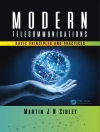This handbook provides an accessible overview of the most important issues in information and computer ethics. It covers: foundational issues and methodological frameworks; theoretical issues affecting property, privacy, anonymity, and security; professional issues and the information-related professions; responsibility issues and risk assessment; regulatory issues and challenges; access and equity issues. Each chapter explains and evaluates the central positions and arguments on the respective issues, and ends with a bibliography that identifies the most important supplements available on the topic.
Table des matières
Foreword (Deborah G. Johnson).
Preface.
Contributors.
Introduction (Kenneth Einar Himma and Herman T.
Tavani).
PART I: FOUNDATIONAL ISSUES AND METHODOLOGICAL
FRAMEWORKS.
1. Foundations of Information Ethics (Luciano
Floridi).
2. Milestones in the History of Information Ethics (Terrell
Ward Bynum).
3. Moral Methodology and Information Technology (Jeroen van
den Hoven).
4. Value Sensitive Design and Information Systems (Batya
Friedman, Peter H. Kahn, and Alan Borning).
PART II: THEORETICAL ISSUES AFFECTING PROPERTY, PRIVACY,
ANONYMITY, AND SECURITY.
5. Personality-Based, Rule Utilitarian, and Lockean
Justifications of Intellectual Property (Adam D. Moore).
6. Informational Privacy: Concepts, Theories, and Controversies
(Herman T. Tavani).
7. Online Anonymity (Kathleen A. Wallace).
8. Ethical Issues Involving Computer Security: Hacking,
Hacktivism, and Counterhacking (Kenneth Einar Himma).
PART III: PROFESSIONAL ISSUES AND THE INFORMATION-RELATED
PROFESSIONS.
9. Information Ethics and the Library Profession (Kay
Mathiesen and Don Fallis).
10. Ethical Interest in Free and Open Source Software
(Frances S. Grodzinsky and Marty J. Wolf).
11. Internet Research Ethics: The Field and its Critical Issues
(Elizabeth A. Buchanan and Charles Ess).
12. Health Information Technology: Challenges in Ethics,
Science, and Uncertainty (Kenneth W. Goodman).
13. Ethical Issues of Information and Business (Bernd Carsten
Stahl).
PART IV: RESPONSIBILITY ISSUES AND RISK ASSESSMENT.
14. Responsibilities for Information on the Internet (Anton
Vedder).
15. Virtual Reality and Computer Simulation (Philip
Brey).
16. Genetic Information: Epistemological and Ethical Issues
(Antonio Marturano).
17. The Ethics of Cyber Conflict (Dorothy E.
Denning).
18. A Practical Mechanism for Ethical Risk Assessment – A So DIS
Inspection (Don Gotterbarn, Tony Clear, and Choon-Tuck
Kwan).
PART V: REGULATORY ISSUES AND CHALLENGES.
19. Regulation and Governance on the Internet (John Weckert
and Yeslam Al-Saggaf).
20. Information Overload (David M. Levy).
21. Email Spam (Keith W. Miller and James H. Moor).
22. The Matter of Plagiarism: What, Why, and If (John
Snapper).
23. Intellectual Property: Legal and Moral Challenges of Online
File Sharing (Richard A. Spinello).
PART VI: ACCESS AND EQUITY ISSUES.
24. Censorship and Access to Information (Kay
Mathiesen).
25. The Gender Agenda in Computer Ethics (Alison
Adam).
26. The Digital Divide: Perspective for the Future (Maria
Canellopoulou-Botti and Kenneth Einar Himma).
27. Intercultural Information Ethics (Rafael
Capurro).
Index.
A propos de l’auteur
Kenneth Einar HIMMA, Ph D, JD, is Associate Professor of
Philosophy at Seattle Pacific University. His research interests
include legal philosophy, applied ethics, information ethics, and
computer ethics. Dr. Himma has authored more than 100 scholarly
articles, encyclopedia entries, book reviews, and op-ed newspaper
pieces, as well as a book, Internet Security: Hacking,
Counterhacking, and Society.
Herman T. Tavani, Ph D, is Professor of Philosophy at Rivier
College (New Hampshire) and President of the International Society
for Ethics and Information Technology (INSEIT). He also holds
appointments as a visiting lecturer at Boston College and as a
visiting scholar at the Harvard School of Public Health. Professor
Tavani is the author, editor, or coeditor of five books, including
Ethics and Technology (Wiley), now in its second edition.












